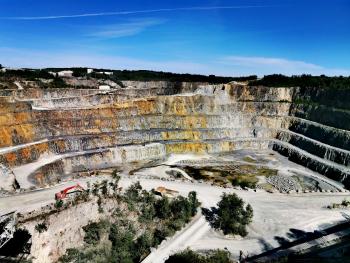Mining law refers to the branch of law relating to the activities involved with mining and minerals. There are several topics involved with mining law:
- Ownership: this refers to the question of who "owns" the minerals that are being mined, and if they may legally take the minerals from the earth. The ownership of a mineral depends on the type of mineral and the jurisdiction in which the mineral is found.
- Support: this refers to the method of extraction and the effect it may have on nearby property owners. In this case, the property owners have certain legal rights if their personal property is affected poorly by the extraction of minerals close to them.
Mining in the Commonwealth and other Anglo-Saxon countries is different from other jurisdictions like Germany and French-speaking countries because of their systems of law. In the case of the Commonwealth, the landowner has claim to all of the minerals that are found within it, except in the case of gold and silver reserves, where the Crown has claim to all of the mined goods. In the United States, the states individually have claim over phosphate, nitrate, potassium salts, asphalt, coal, oil shale and sulphur, as well as a right of appropriation to oil and gas.
Mining policies in the United States are governed by the General Mining Act of 1872, in which the government authorizes the mining of minerals for economic purposes. This law codified the claim of land in which minerals could be found for mining. Canadian policy is determined by the Minerals and Metals Policy of the Government of Canada. The policy determines jurisdictions and defines the role of the federal government in mining in Canada.
© BrainMass Inc. brainmass.com July 25, 2024, 3:46 am ad1c9bdddf
